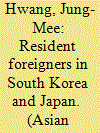| Srl | Item |
| 1 |
ID:
125528


|
|
|
|
|
| Publication |
2013.
|
| Summary/Abstract |
Despite the substantial efforts made to develop sound energy efficiency policies, the desired effects in terms of achieved energy savings are lacking. This phenomenon is known as the energy efficiency gap and has been extensively investigated in the literature. Barrier models to explain the gap are primarily oriented towards the technical aspects of energy efficiency and often disregard its social aspects. The aim of our research was to identify the social structures that play a prominent role in moving society towards greater energy efficiency, to investigate their perceptions of the levers for and brakes to greater participation in the implementation of energy efficiency measures and to provide recommendations for policy enhancement. Four groups of stakeholders were identified: public institutions, businesses, civil society organisations and the media. A survey was administered to 93 representatives of these groups in Croatia. The results indicate that to encourage the society to adopt energy efficiency improvements, it is crucial for public institutions to play a leading role with the support of strong and visible political commitment. The level of benefit recognition among all groups is weak, which together with the slow progression of dialogue between and within the analysed groups is preventing full policy uptake.
|
|
|
|
|
|
|
|
|
|
|
|
|
|
|
|
| 2 |
ID:
149051


|
|
|
|
|
| Summary/Abstract |
Although South Korea and Japan tend to maintain their identity as nonimmigration countries, a policy agenda for foreign residents has incrementally emerged, especially since the 1990s. In this comparative analysis, I examine the status of permanent and long-term residents and relevant policy changes that enhance their social and political rights regardless of naturalization. Permanent residents in Japan can access social welfare benefits such as the national pension, public assistance, and child allowances, but they are excluded from local suffrage. In contrast, permanent residents of South Korea have political rights in local elections while welfare coverage for them is restricted to public insurance, with no public aid entitlement. This difference represents a policy gap, caused by inconsistencies in the process of policy revisions and different priorities in policymaking.
|
|
|
|
|
|
|
|
|
|
|
|
|
|
|
|